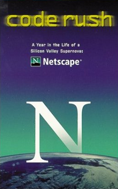On several occasions I have had the opportunity to discuss digitalization of traditional media. In particular to images that are no longer covered by copyright. Those who act as caretakers and gatekeepers for these cultural treasures have long been positive to digitalization – but were quick to discover that digitalization alone is not enough. The turning point of public opinion occurred when the Library of Congress began its pilot project with Flickr in the Flickr Commons. Read more about it on the Library of Congress blog or the report from the pilot.
Despite the anecdotal evidence, the gut feeling and the report some gatekeepers are still concerned about what will happen to “their” images if the plebeian mass can access them freely.
At first I thought their fears stemmed from a loss of income from selling prints, but this seems not to be their main concern even if some do refer to this. There main concern is the way in which the images will be treated.
They fear the disrespectful handling of digitalized cultural artifacts.
Now you may well ask yourselves how a digitalized artifact may be manhandled? Obviously it is not about destruction but there are concerns about use. The legal protection is long gone. The photographs are long since in the public domain and can be used and abused at will. This is of concern to the caretakers/gatekeepers since they have been entrusted with the images in physical form. In almost all cases they have received the photographs with a promise that they are preserving a part of cultural heritage. They believe that in their role as cultural preservers lies a duty to ensure that the photographers honor is not sullied by disagreeable online use.
And they know all too well that once digitalization and access has been granted there is no longer any control.
While I am a copyright minimalist and I think our protection terms are way too long I do feel there is a point here. How can museums and archives fulfill their duty to preserve what they have received in trust while maintaining their duty to provide access to culture?
Then I look at the work done by the Swedish National Heritage Board in relation to this question. They have put a small selection of their images on the Flickr Commons. A mere 274 photographs by Carl Curman (1833-1913).
The photographs have been accessed over 200 000 time since 17 March this year, that’s less than four months! Or 50 000 views per month (K-Blogg).
Besides pushing the almost unknown Carl Curman to a portion of internet fame the project at the Swedish National Heritage Board has brought back to life a set of dead photographs. Image how many times a photograph is seen in it’s lifetime. The average must be depressingly low. The most popular photograph in their project has been viewed 7805 times. Stop. Read the numbers and think. Seven thousand eight hundred and five times.

Stockholm by Carl Curman now seen by one more person: You…
Sure the photo will be ripped off. It will be posted on websites, stored on computers, used in presentations and the name of Carl Curman will be disassociated from the picture he took. Even more certain is that the Swedish Cultural Heritage Board will not be attributed enough for their thankless task of bringing this dead cultural artifact to life. But let us remember the old adage – no good dead goes unpunished.
The role of the caretaker/gatekeeper is, not a they once believed it to be, to prevent access. In the real world, grubby fingers and clumsy handling destroy the real artifact and lose it to the whole world. That is why we should be kept away from the real thing. But in the digital world the same is not true. What the flickr commons shows beyond a doubt is that while digitalization is good, it is nothing without access.
Ask Carl Curman.



